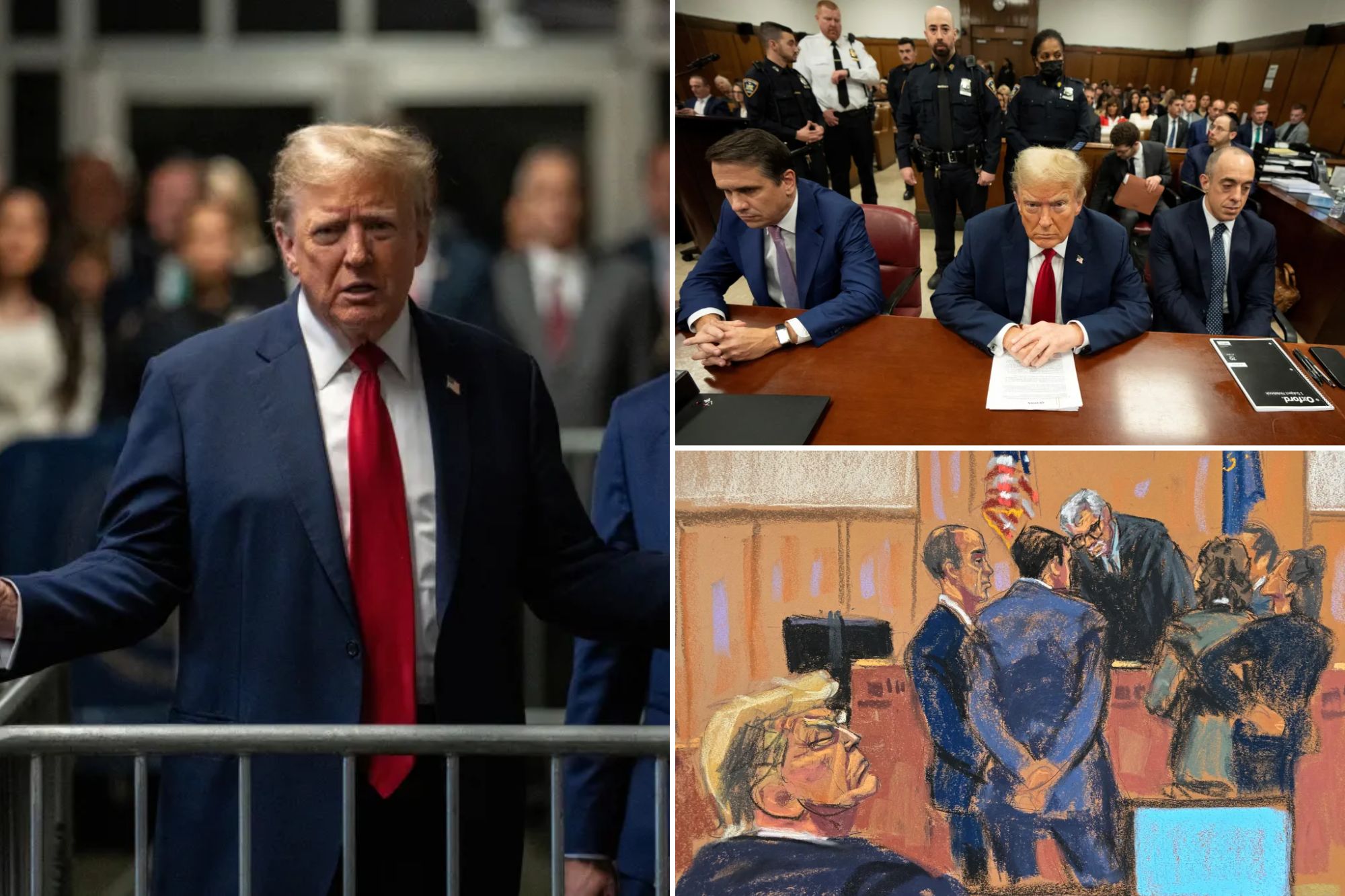
As Donald Trump’s historic hush money trial nears its end, the former president’s legal team has a crucial decision to make: whether or not to ask the jury to consider misdemeanor charges in the case.
During the charge conference that precedes closing arguments – which are expected early this week – Trump’s team, by New York state law, can request what’s known as a lesser included offense (LIO) to have the jury weigh 34 misdemeanor counts of falsifying business records instead of the 34 felony counts prosecutors have alleged the ex-president committed, former judge, Ethan Greenberg, wrote in the Wall Street Journal Sunday.
“An LIO is a less serious crime that carries lower penalties and is included within the definition of a more serious crime of which a defendant is accused,” Greenberg explained.
The main reason Trump’s camp would use the legal option is the far-lighter sentencing guidelines attached to the misdemeanor charges, according to Greenberg.
The 34 felony counts of falsifying business records carry up to four years each prison time. The misdemeanor charges, according to Greenberg, would result in two years behind bars.
But Greenberg notes that it would be a gamble for Trump’s team to submit an LIO, which could also be requested by the prosecution and at Manhattan Supreme Court Justice Juan Merchan’s discretion.
If both sides and Merchan move forward without the LIO to only consider the felony counts and the jury finds Trump deliberately falsified the records – but not to cover up a crime as Manhattan District Attorney Alvin Bragg has alleged — then the former president would be acquitted.
Under the same jury findings with the LIO, Trump would be convicted as the misdemeanor charges only require proof that the former president intentionally falsified business records, according to Greenberg.
Prosecutors charge the alleged hush money payment to porn star Stormy Daniels was part of an illegal bid by Trump to influence the 2016 election by hiding a damaging sex scandal from voters.
Another drawback to Trump’s camp asking for the LIO would be a tougher route to appeal should he be convicted on the misdemeanor charges.
“A substantial body of case law in New York holds that if the defendant requests that a lesser included offense be submitted and is then convicted of that offense, the defendant waives his right to challenge on appeal the legal sufficiency of the evidence supporting that lesser charge,” wrote Greenberg.














